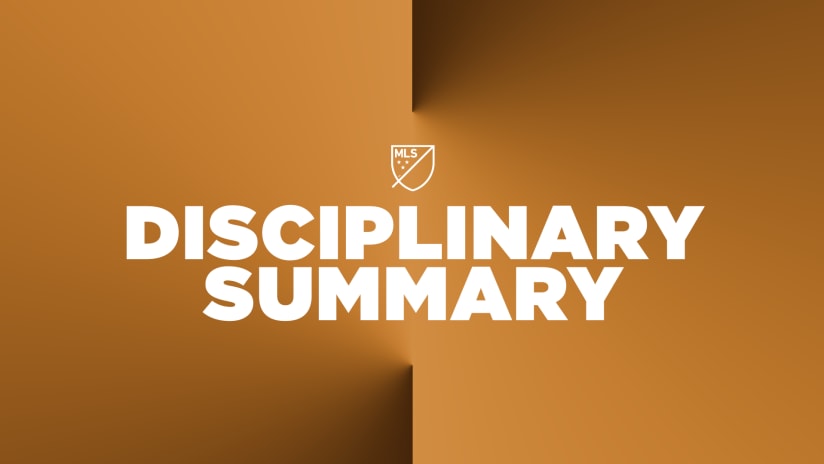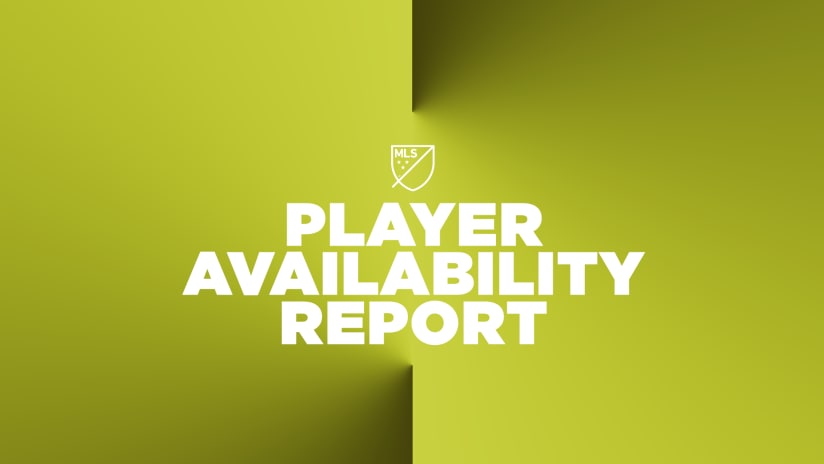ExtraTime Radio Podcast

LISTEN: They're sponsored by a liquor store. Their real jobs come before training. They're on the verge of shocking the world – if they haven't already. Christos FC are the final amateur side remaining in the US Open Cup and booked a Fourth Round date with D.C. United after a big win on Wednesday. Shawn Smith helped found the club two decades ago and calls in to tell their incredible story.
And now for something completely different:
Man's Crisis of Identity in the Latter Half of the 20th Century
Rapids coach Pablo Mastroeni had some entertaining stuff to say about the concept of statistics – advanced or otherwise – and specifically with regard to pitting data collection and analysis against "the human spirit." I understand why he did this: It's easier to get a team to rally around a message of "we've got to overcome the doubters and show everyone what we're made of" than it is to get them to rally around "we need to generate better xG per shot when playing direct through the right channel rather than switching after midfield interplay."
Motivation is a very real thing, and don't believe anyone who says it isn't. And Mastroeni, who played hard himself and whose teams play hard, clearly knows a thing or two about motivation.
It's also worth noting that few teams have invested as fully into Opta data as the Rapids, and that explains some of how they've played this year. To wit:
(Ignore the part about 2016 being a fluke, which I don't necessarily disagree with but isn't really germane here).
That graphic represents the quality of shots the Rapids take and concede, by minute. Colorado generate much, much better shots in the first hour, and specifically from about minutes 10-through-40, than their opponents this year. It's counterintuitive because you'd think a team with such great chances would be winning a lot of games, but...
...raw chance quality does not mean they're generating a better chance of scoring a goal, in large part because they're simply not capable of creating enough looks. The above chart is per shot expected goals, not cumulative expected goals.
You'll notice that Colorado's shot quality plummets at the hour mark while the opposition's just about doubles. This is partially an effect of game states – usually, by the 60th minute, the Rapids are chasing a result. When they're forced to chase the game, they take more (bad) shots on the one hand, and expose themselves for counters in the other direction on the other. But almost as often it seems like it's an effect of tanks hitting empty: They spend themselves hard in the first 45 minutes trying to get out on the break, and it seems to take a toll.
To that end, Colorado have posted two shutouts victories (their only wins) in their last 10 games. In the other eight, they have conceded 13 goals in the 55th minute or later.
So we'll see what Gregg Berhalter and Columbus Crew SC have cooked up on Saturday night (9 pm ET; MLS LIVE).
I'll also be watching: Columbus really do leave themselves exposed on the counter, and they'll be playing an inter-conference road game at altitude on short rest. Expect some serious squad rotation.
How Not to Be Seen
When Matt Polster came into the league a couple of years ago, two things stood out to me: his ability to switch play usefully, and his courage to get on the ball in tough spots. Because of those two things he spent the majority of his first couple of years as a defensive midfielder, which is where I thought he'd end up.
But Polster ended up being something close to untameable in central midfield – a No. 6 who played, positionally, like a No. 8. Two coaches tried their damnedest to get him to settle into being a backline shield and game conductor, but neither Frank Yallop nor Veljko Paunovic were entirely happy with Polster's progress. So this offseason, when Chicago went out and got both Dax McCarty and Juninho, it felt kind of like the writing was on the wall. There had to be a trade coming.
That was the wrong writing. Instead, Polster's made his return from injury as an overlapping fullback, which is a spot where he'd moonlighted in his first two years. This makes some sense as fullbacks have become a "hybrid" position in any sort of back four:
If you want to be a box-to-box player in soccer these days, you're better off becoming a fullback rather than a central midfielder. Thus, right back may end up being Polster's long-term home, and I'd expect him to start there for the fourth consecutive game on Sunday night when the Fire visit Orlando City (7:30 pm ET; FS1, FOX Deportes in the US | MLS LIVE in Canada).
I'll also be watching: No idea how Chicago's central defense has a prayer of matching up with Cyle Larin in the 18. Every set piece, every early cross is going to be a nightmare for the visitors.
Repeating Groove
The Seattle Sounders generate a lot of possession in the attacking third. Every turnover they commit, or every bad shot they take, is a chance for their opponent to get out and run.
On Sunday night they're hosting the Houston Dynamo (10 pm ET; MLS LIVE), who do this:
This game will come down to how dangerous Seattle's turnovers are, and not much beyond that.
I'll also be watching: Ok, maybe it'll come down to something else, given that Seattle have been attempting and completing fewer final third passes over the last few games. Holding the ball deeper comes with its own risks – turnovers are worse the closer you are to your own goal, generally – but playing in sort of a 3/4s depth gives Nico Lodeiro more field to see, and more room into which he can spray some through balls.
It's fair to question whether anyone in Rave Green will be able to finish those chances, though.
One more thing to ponder...
Happy weekending everybody.













